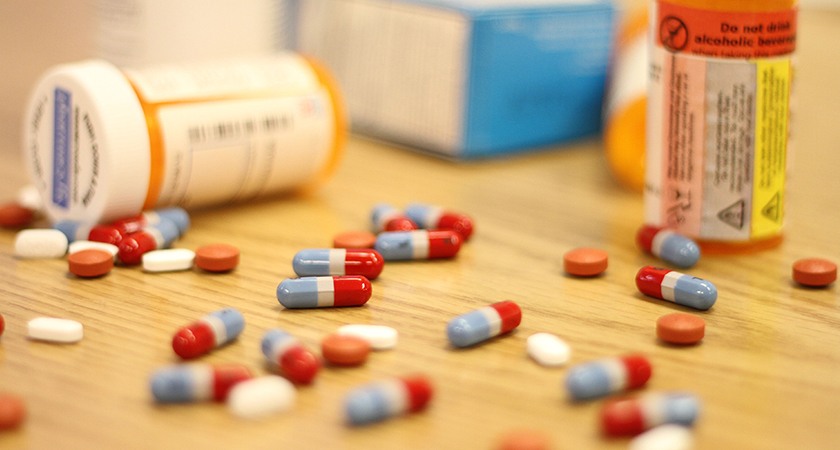Diabetes is a chronic condition that affects millions worldwide, posing significant risks not just to overall health but specifically to the kidneys. The intricate balance between managing blood sugar levels and protecting kidney function is crucial for individuals with diabetes. In this blog post, we delve into the best diabetes medications for kidneys that are not only effective in controlling blood sugar but also exhibit renal-friendly properties.
Contents
How Are Diabetes Medications For Kidneys Helpful?
 Diabetes medications that are beneficial for the kidneys play a crucial role in the management of diabetes, especially for those at risk of or already facing kidney-related complications. These medications can be helpful in several key ways:
Diabetes medications that are beneficial for the kidneys play a crucial role in the management of diabetes, especially for those at risk of or already facing kidney-related complications. These medications can be helpful in several key ways:
- Reducing Blood Pressure
Many diabetes medications have the added benefit of lowering blood pressure, a significant factor in kidney health. High blood pressure can further damage the kidneys in diabetic patients. By controlling blood pressure, these medications help protect the kidneys from further harm.
- Direct Renal Protection
Certain classes of diabetes medications, such as SGLT2 inhibitors and GLP-1 receptor agonists, have shown direct benefits in protecting the kidneys beyond their effects on blood sugar and blood pressure levels. These medications can help reduce the progression of kidney disease by affecting various pathways involved in kidney damage.
- Decreasing Proteinuria
Protein in the urine (proteinuria) is a sign of kidney damage. Some diabetes medications can reduce proteinuria, indicating a protective effect on the kidneys. Reducing proteinuria can slow the progression of kidney disease in people with diabetes.
- Enhancing Glomerular Filtration Rate (GFR)
The glomerular filtration rate (GFR) is a test used to check how well the kidneys are working. It estimates how much blood passes through the glomeruli (the tiny filters in the kidneys) each minute. Certain diabetes medications can help maintain or slow the decline of GFR, indicating better kidney function.
- Preventing Long-Term Complications
By managing blood sugar levels and providing direct protection to the kidneys, these medications can help prevent the long-term complications of diabetes, including end-stage renal disease (ESRD). It requires dialysis or a kidney transplant.
Overall, diabetes medications that are beneficial for the kidneys work through multiple mechanisms to protect kidney health. They not only manage blood sugar levels effectively but also offer direct benefits to the kidneys, helping to prevent or slow the progression of kidney disease in patients with diabetes.
What Are The Best Diabetes Medications For Kidneys?
 The best diabetes medications for kidneys have been shown to provide protective benefits, slowing the progression of kidney disease and even improving kidney function in some cases. Here are some of the most recommended diabetes medications for kidneys-protective effects:
The best diabetes medications for kidneys have been shown to provide protective benefits, slowing the progression of kidney disease and even improving kidney function in some cases. Here are some of the most recommended diabetes medications for kidneys-protective effects:
SGLT2 Inhibitors
SGLT2 inhibitors are a class of medications that lower blood sugar by causing the kidneys to remove sugar from the body through the urine. Beyond their glucose-lowering effect, they have been shown to provide significant kidney-protective benefits. Examples include:
- Empagliflozin (Jardiance)
- Canagliflozin (Invokana)
- Dapagliflozin (Farxiga)
GLP-1 Receptor Agonists
GLP-1 receptor agonists work by increasing insulin secretion in response to meals, slowing gastric emptying, and reducing appetite. Some drugs in this class have been shown to reduce the risk of kidney disease progression. Examples include:
- Liraglutide (Victoza)
- Semaglutide (Ozempic, Rybelsus)
- Dulaglutide (Trulicity)
DPP-4 Inhibitors
While not as directly beneficial for the kidneys as SGLT2 inhibitors or GLP-1 receptor agonists, DPP-4 inhibitors are considered safe for patients with kidney disease. They can be a part of a kidney-friendly diabetes treatment plan. Examples include:
- Sitagliptin (Januvia)
- Linagliptin (Tradjenta)
- Saxagliptin (Onglyza)
Metformin
Metformin is a first-line medication for the treatment of type 2 diabetes and is safe in patients with mild to moderate kidney disease, contrary to earlier concerns. It’s important to adjust the dose based on kidney function.
Insulin Therapy
Insulin therapy may be necessary for patients with advanced kidney disease, as the kidneys play a role in insulin degradation and excretion. Dosing may need adjustment based on kidney function.
These medications help in managing blood glucose levels. Also offers additional benefits that can slow the progression of kidney disease, and reduce hospitalizations related to heart and kidney issues. And may improve survival rates among people with type 2 diabetes.
How Do Lifestyle Changes Help In Kidneys Health?
Lifestyle changes play a crucial role in maintaining kidney health, especially for individuals at risk for or living with kidney disease. Implementing healthier lifestyle choices can significantly reduce the burden on the kidneys. Here’s how specific lifestyle changes can be beneficial for kidney health:
Maintaining a Healthy Diet
A low-sodium diet is essential for managing blood pressure levels. This is crucial because high blood pressure can cause significant damage to the kidneys over time. Limiting sodium intake helps prevent fluid retention and hypertension. For individuals with kidney disease, controlling protein consumption is also advised to decrease the kidneys’ workload, thereby slowing disease progression. Furthermore, patients with advanced kidney issues may need to monitor and limit their intake of potassium and phosphorus.
Regular Physical Activity
 Engaging in regular physical activity is beneficial for several reasons. It helps control weight, lower blood pressure, reduce the risk of heart disease, and maintain or improve the health of the kidneys. Exercise can also be particularly effective in managing blood sugar levels for people with diabetes, a condition closely linked to kidney health. Whether it’s walking, cycling, swimming, or participating in group sports, finding an enjoyable form of exercise can make a significant difference in overall health and kidney function.
Engaging in regular physical activity is beneficial for several reasons. It helps control weight, lower blood pressure, reduce the risk of heart disease, and maintain or improve the health of the kidneys. Exercise can also be particularly effective in managing blood sugar levels for people with diabetes, a condition closely linked to kidney health. Whether it’s walking, cycling, swimming, or participating in group sports, finding an enjoyable form of exercise can make a significant difference in overall health and kidney function.
Weight Management
Maintaining a healthy weight is crucial for preventing and managing kidney disease. Excess body weight increases the risk of developing conditions like diabetes and hypertension. These are major risk factors for kidney damage. Weight loss, when needed, can improve kidney health by directly reducing the risk of these underlying conditions, thereby alleviating the stress on the kidneys.
Smoking Cessation
Smoking is a harmful habit that can exacerbate kidney damage. It impairs blood flow to the kidneys, heightening the risk of kidney disease and making existing kidney conditions worse. Quitting smoking is one of the most significant steps individuals can take to protect their kidneys and improve their overall health.
Limiting Alcohol Intake
Alcohol consumption should be moderated since excessive drinking can lead to an increase in blood pressure and, over time, potentially cause liver disease, which affects kidney function. For individuals with kidney disease or those at risk, limiting alcohol to recommended levels—or avoiding it altogether—can prevent further kidney damage.
Hydration
Adequate hydration is key to kidney health. Water helps the kidneys remove waste from the blood in the form of urine. Well-hydrated kidneys can more effectively clear sodium, urea, and toxins, reducing the risk of chronic kidney disease. However, those with certain stages of kidney disease need to manage their fluid intake as per medical advice, as their kidneys may not be able to handle large volumes of fluid efficiently.
Controlling Blood Sugar
For individuals with diabetes, tightly controlling blood sugar levels is critical to prevent damage to the microvessels in the kidneys. Persistent high blood sugar can harm these vessels, impairing the kidneys’ ability to filter waste effectively, which underscores the importance of managing diabetes for kidney health.
By integrating these lifestyle changes, individuals can greatly enhance their kidney health and overall well-being. These changes can be challenging to implement and maintain, but the benefits they offer in terms of kidney function and general health are invaluable.
What Are The Considerations In Diabetes Medications For Kidneys?
 When choosing diabetes medications for individuals with kidney concerns, several important considerations come into play to ensure both efficacy and safety. Here are the key considerations in selecting diabetes medications for patients with kidney issues:
When choosing diabetes medications for individuals with kidney concerns, several important considerations come into play to ensure both efficacy and safety. Here are the key considerations in selecting diabetes medications for patients with kidney issues:
Kidney Function Assessment
Before prescribing any diabetes medication, it’s crucial to assess the patient’s kidney function. This is typically done through blood tests that measure serum creatinine levels and calculate the estimated glomerular filtration rate (eGFR). The eGFR provides an estimate of the filtering capacity of the kidneys.
Risk of Hypoglycemia
Certain diabetes medications, particularly those that increase insulin production or action, can raise the risk of hypoglycemia (low blood sugar). This can be particularly dangerous in people with compromised kidney function. Kidneys play a role in clearing insulin and some diabetes medications from the body; reduced kidney function can lead to prolonged medication action and increased risk of hypoglycemia.
Management of Concomitant Risk Factors
Patients with diabetes and kidney disease often have other comorbidities, such as hypertension and cardiovascular disease, that require medication. The choice of diabetes medications may be influenced by the need to manage these risk factors concurrently. For example, some antihypertensive drugs also offer protective benefits for the kidneys and may influence the overall medication strategy for managing diabetes.
Efficacy in Lowering Blood Glucose
The primary objective of diabetes management is to control blood glucose levels within target ranges to prevent complications. The efficacy of diabetes medications can vary based on kidney function, and this must be considered when selecting a medication regimen. Medications that remain effective at reduced kidney function levels and have a safety profile suitable for these patients are preferred.
Patient Preferences and Lifestyle Considerations
Patient preferences, lifestyle factors, and potential side effects play a significant role in medication adherence and effectiveness. When choosing a diabetes medication regimen for patients with kidney disease, it’s important to consider factors such as dosing frequency, route of administration, and the patient’s ability to adhere to the treatment plan.
Selecting the most appropriate diabetes medication for patients with kidney concerns requires a careful and individualized approach. Ongoing monitoring and collaboration between healthcare providers and patients are essential to optimize treatment outcomes and protect kidney health.
Conclusion
In conclusion, managing diabetes in patients with kidney concerns requires a thoughtful balance of medications, lifestyle changes, and regular monitoring. It’s crucial to choose the best diabetes medications for kidneys that not only effectively control blood sugar but also offer protection for the kidneys, taking into consideration each patient’s unique health profile and kidney function. Incorporating healthy lifestyle habits can significantly support medication efforts in maintaining kidney health.
With ongoing communication between healthcare providers and patients, individualized treatment plans can lead to better management of diabetes. Do you want to get rid of diabetes? Join our online diabetes treatment program and reverse Diabetes naturally through lifestyle changes such as a Personalized Diet plan, Exercise, Yoga, dieticians, and health coaches.

